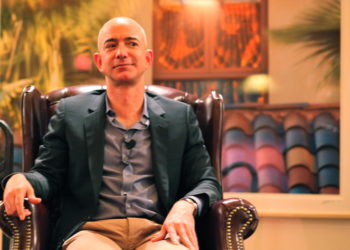Making the rounds this week is the video below, a 60 Minutes piece on some crazy new-fangled start-up company called, “Amazon.” The reporter openly laughs at the ridiculous notion that “a couple of geeks who sketched out some software could destroy Sears Roebuck.” (For our younger readers, you can find out what Sears Roebuck was here). He marvels that Amazon was valued at $30B (now more than 20 times that) and that founder Jeff Bezos had a personal fortune of $9-10B (now 10 times that). It’s also interesting to see some of the early roots of our surveillance society discussed, as much of the piece looks (naïvely) at Amazon’s nascent data collection practices.
Discussion
2 Thoughts on "Amazon in 1999, A Look Back"
Entertaining but painful, too, for those of us (like me) who entered the stock market with 401K plans during that same 1999 and watch half their value vanish in 2000 after the tech bubble. Amazon survived but many did not.
In 1991-2003, I worked at Talking Leaves, an independent bookstore in Buffalo NY. Amazon made an forceful appearance at a meeting of the American Booksellers Association I attended one year around 1998-2000, at the Chicago convention center, with big banners and a big booth in the middle of the floor.
They were there to tell us, not that they’d “eat our lunch,” as business people say, but that they’d eat *us*.
Some deluded Amazon workers at a booth went through motions of selling books to booksellers. These unfortunate employees showed me that Amazon had the power to brainwash them, although in fairness, that’s a power many employers have.
Back at work at Talking Leaves, customers would tell us how much they paid for books at Amazon. Since I knew exactly how much books cost wholesale, and how much shipping cost were, it was obvious to me that Amazon lost money on nearly every sale. Amazon could still get cash by selling stock, however, and Bezos’s own fortune could float their loss for a long time. (Amazon later cut its losses.)
Talking Leaves still exists in Buffalo. I am a librarian now.
Today I tell people that Amazon is not really a retail company, since it does not make money that way. But investments make money many different ways. Amazon is an investment vehicle, in which consumer traffic generates cash flow which Amazon leverages for growth, yielding investment income.

